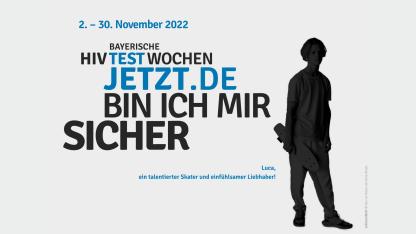Anonymous tests quickly provide certainty
More about the Checkpoint Ulm

By Sonja Fiedler
Anonymous, quick and uncomplicated: every two weeks you can get tested for HIV and other sexually transmitted diseases at the "Checkpoint" of the AIDS aid in Ulm on Wednesday evenings. An offer that is well received - in 2019, 522 tests were carried out, according to Aids Aid. "So far we only had one test evening a month," says employee Waltraud Schwendele: "Now we have gained two doctors. We were therefore able to expand the range. " Six doctors and eight other volunteers are part of the "Rainbow" team. They receive the advice seekers, advise them and carry out tests - in addition to HIV also for syphilis, hepatitis B and C as well as chlamydia and gonorrhea. "Syphilis has increased in recent years," says Schwendele. The disease can be cured with antibiotics. HIV is not curable, but it can be treated so well today that one can lead a normal life. "It is good if you know early on that you are HIV-positive, then you can start therapy straight away," explains Schwendele. One tablet a day would ensure that the infected person could no longer infect anyone. Nevertheless, it is important to protect yourself against HIV, through condoms or the so-called prep prophylaxis, in which the HIV medicine is taken as a precaution. "An infection means that you have to take medication for life," says Schwendele. A positive test result is therefore still a decisive event and good advice is important: "Many do not even know how HIV infection is treated today." In addition to a quick test that leads to the result after 20 minutes, a laboratory test is also offered. Hans-Peter Moravetz works on a voluntary basis in the team and is also a member of the association's board. "I've been here for a long time, even back when it was worse," he said. "It's a good thing." It is not a matter of course that so many people get involved in AIDS aid, says CFO Dieter Borst: "There is a lot of voluntary work behind this, it is something special." Most people who get tested for HIV leave the checkpoint with relief, says Schwendele: only one infection was detected last year - out of 179 tests.
Share on






